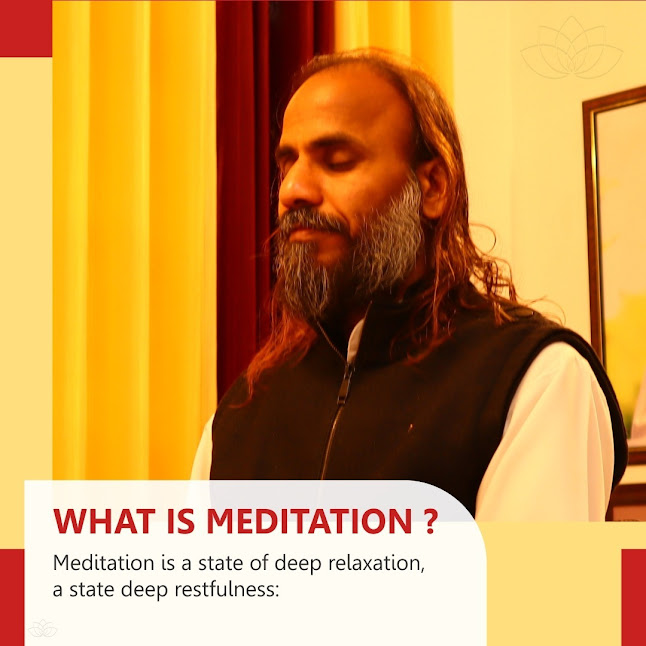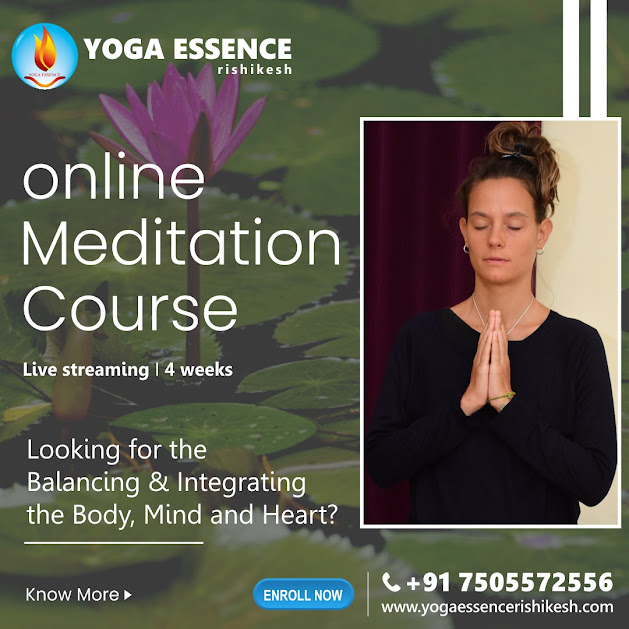How to Meditate for Beginners?
How to Meditate for Beginners?
Meditation is one among those sorts of
things that you simply have probably heard about but haven't tried. Maybe you
think that it's one among those sorts of new-age type things that are all
promise and really little substance, but you're genuinely curious to undertake
it out. or even you're indeed conscious of the unique benefits of meditation,
but you're almost sure where to start out. Either way, this text will assist
you out the way to meditate for beginners should allow you to simply start.
Meditation is about allowing the natural
noise of the mind to calm down and at an equivalent time allowing you to extend
your awareness. There are many various ways to meditate, and there's really no
right or wrong thanks to meditating, but there may be a simple meditation to
start out you off.
Sit comfortably during a quiet place far
away from strong lights or the other strong stimulation. If it helps, you'll
put earplugs into your ears, if you would like to dam out some unwanted sounds.
Why Mediation is important in our
Life:
• Lower your stress
• Connect better
• Improve focus
• Reduce brain chatter
• Understanding your pain
How to Meditate?
Meditation is something that is done by
everyone s everyone. It is easier (and harder) than most people think. Below we
have mentioned few steps for beginners on how to meditate. Please go step by
step to perform better:
1) Take a seat
Seat yourself in a calm and quiet place to
feel it in a better way.
2) Set a deadline
If you’re just beginning, it can help to
settle on a brief time, like five or 10 minutes.
3) Notice your body
You can sit in a chair together with your
feet on the ground, you'll sit loosely cross-legged, you'll kneel—all are fine.
Just confirm you're stable and during a position, you'll stay certain a short
time.
4) Feel your breath
Follow the feeling of your breath because
it goes in and because it goes out.
5) Notice when your mind has wandered
Your attention will leave the breath and
roam to other places inevitably. Once you get around to noticing that your mind
has wandered—in a couple of seconds, a minute, five minutes—simply return your
attention to the breath.
6) Be kind to your wandering mind
Don’t judge yourself or obsess over the
content of the thoughts you discover yourself lost in. Just come.
7) Close with kindness
Gently lift your gaze when you’re ready.
Take a flash and see any sounds within the environment. Notice how your body
feels immediately. Notice your thoughts and emotions.
As you sit relaxed together with your eyes
closed, you'll notice certain sensations in your body or mind. you'll feel
yourself relaxing deeply. you'll notice that your mind becomes silent, or that
your thoughts merely hamper and subsided intrusive.
After a short time, gently open your eyes,
and spend a couple of minutes sitting there relaxed but alert together with
your eyes open. Gently become conscious of the space again, but with no
judgment or thought. attempt to make time to try to do this easy meditation practice a minimum of once each day, but preferably twice, and over time you
ought to start to note the advantages.
That’s it! That’s the practice. You get
away, you come, and you are trying to try to do it as kindly as possible. For
more details on mediation for beginners stay tuned with Yoga Essence.




Comments
Post a Comment